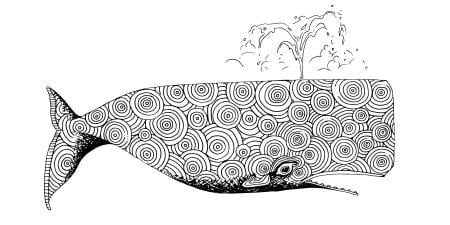School immunization laws in all 50 states provide for medical exemptions for children whose specific underlying health conditions, such as HIV infection, cancer or immunosuppressive therapies, place them at undue risk from one or more routine childhood immunizations [1]. In all but two states, “nonmedical” exemptions are permitted: 48 states permit exemptions based on religious belief, while more than one-third of those states also permit exemptions based on nonreligious personal convictions [2]. States vary in how they define “religious” or “philosophical” beliefs and in the standards of proof required of parents; in some states parents have been required to defend their beliefs at a “religious sincerity” hearing or to provide written documentation that their religious beliefs are incompatible with state immunization law. In other states they simply sign a form or check a box to claim a nonmedical exemption. This is an active area of legislation, with trends tending toward adding nonmedical exemption categories or making it easier for parents to obtain such exemptions [3]. States where it is easy to get an exemption tend to have the largest numbers of exemptions [4].
Nationwide, only a tiny percentage of parents—one percent is the estimate commonly cited by pediatricians—invoke nonmedical exemption. However, because families with similar beliefs may choose to live together, worship together, send their children to the same schools or be part of the same home-schooling networks, local rates of vaccination refusal may far exceed one percent. Parental refusal has been implicated in the development of “hot spots”: locations where the herd immunity provided by compulsory vaccination has been weakened sufficiently for disease outbreaks to occur.
In Boulder, Colo., endemic pertussis (whooping cough) has been linked to vaccination rates of about 50 percent among children at a local private school [5]. In 1991, a measles epidemic in Philadelphia that resulted in more than 500 cases and seven fatalities was traced to unvaccinated children whose families were members of two faith-healing churches [6]. Herd immunity can also be weakened in communities where large numbers of children are undervaccinated, having missed or not completed vaccinations due to lack of access to health care or frequent family relocations [7]. While undervaccination is a different public health problem than vaccination refusal, laws that ease nonmedical exemptions are of special concern to physicians and public health officials in states with communities where undervaccination already threatens herd immunity [8].
The reasons parents seek or consider nonmedical exemptions may include strongly held religious convictions about faith healing, such as those characteristic of Christian Science [9]. The U.S. Supreme Court’s landmark decision on the limits of parents’ religious freedom in such cases states that the “right to practice religion freely does not include the liberty to expose the community or the child to communicable disease or the latter to ill health or death” [10]. This ruling is also relevant to cases in which parents claim a religious right to forego medical treatment for a child who is not suffering from a communicable disease. The classic example here is the Jehovah’s Witnesses’ prohibition on treatments involving blood products.
When such cases arise, courts may intervene to protect the health and welfare of the affected children and, in cases where there is a risk of disease outbreak, to protect the health of the community in general. During the 1991 measles epidemic in Philadelphia, public health officials were granted a court order to immunize six children whose families were members of one of the faith-healing congregations identified as the source of the outbreak.
Medical Neglect
“Medical neglect” refers to a parent’s failure to obtain adequate medical care for a child despite having the ability to do so [11]. The American Academy of Pediatrics regards medical neglect as a form of child abuse and neglect and opposes state laws that allow religious exemptions to child protection statutes [12]. What is unclear among physicians, legal scholars and bioethicists is how the concept of medical neglect applies to immunization refusal cases. Families with deeply held convictions concerning faith healing may not have strong or trusting relationships with health care providers in general because of the nature of their religious beliefs. In a public health emergency, there is the risk that characterizing as abusive or neglectful those parents who have refused to vaccinate their children on religious grounds will work against efforts to prevent or control disease outbreaks within or involving religious communities. The interests of these children and of other vulnerable children—including those with medical contraindications—may be better served by ongoing efforts to strengthen herd immunity through vaccination campaigns, greater access to preventive health care in general, and strong epidemiological surveillance and public education programs.
Resistance on Nonreligious Grounds
Parental resistance based on philosophical or personal beliefs about immunization presents a somewhat different clinical, ethical and policy challenge. Many, perhaps most, of these parents have strong personal beliefs about the dangers of vaccines, in particular, the belief that childhood vaccines are linked to rising rates of autism. Some may not believe in the need for vaccines. This belief may co-exist with a preference for alternative medicine, may be the product of a lack of firsthand knowledge of lethal childhood illness (given that these parents themselves received routine childhood immunizations) or may result from a lack of knowledge of how herd immunity works. Resistance to immunization may also be associated with opposition to perceived government intrusion into the lives of families and the rights of parents.
Parents with these personal and philosophical objections to immunization may take advantage of “religious” exemptions simply because the latter are far more likely to be available under the laws of most states. While some of these parents join mail-order or Internet “churches” to bolster their case for a religious exemption, it is not clear how much common ground they have with parents whose resistance to vaccination is an aspect of their religious faith [13].
Physicians’ Role
A recent survey of pediatricians’ attitudes toward families who refuse vaccines focuses on families whose philosophical refusals are based on safety concerns [14]. (The family whose refusals are grounded in a belief in faith healing, or whose children are undervaccinated rather than unvaccinated, might not have a pediatrician at all.) Where some professional caregiving relationship is in place, it affords an opportunity for education and conversation about the risks and benefits of immunization for the individual child and for the community. Physicians should take this opportunity, while bearing in mind the difficulty that even well-educated parents may have in sorting out fact from fear, given the extraordinary number of Web sites dedicated to this particular issue, and on the assumption that parents who refuse vaccines but otherwise attend to medical care for their children do so in the sincere belief that they are acting in the best interests of their children. Clinicians should help these parents understand and acknowledge that they are relying on herd immunity to keep their unvaccinated children safe from life-threatening disease. They can alert these parents to the fact that, while some individuals in a community—a child being treated for leukemia, for example—must be “free riders,” physicians have a duty to the public health as well as to individual patients to ascertain that parents understand the medical and social consequences of refusing immunization. And finally, family physicians can educate themselves about the extent of undervaccination in their communities, advocate for strong, well-funded immunization programs and remind policy makers that permitting nonmedical exemptions has public health consequences.
References
-
Centers for Disease Control and Prevention. National Immunization Program. Guide to contraindications to vaccination. Available at: www.cdc.gov/nip/recs/contraindications_guide.pdf. Accessed September 14, 2006.
-
The two states that currently permit only medical exemptions are Mississippi and West Virginia. The tally of states permitting exemptions on the basis of personal conviction may vary, as some states add this language to their “religious” exemption, while others make it a separate category.
- Salmon DA, Sapsin JW, Teret S, et al. Public health and the politics of school vaccination requirements. Am J Pub Health. 2005;95(5):778-783.
- Salmon DA, Siegel AW. Religious and philosophical exemptions from vaccination requirements and lessons learned from conscientious objectors from conscription. Public Health Rep. 2001;116(4):289-296.
-
Allen A. Bucking the herd. Atlantic Monthly. September 2002. Available at: www.theatlantic.com/doc/prem/200209/allen_a). Accessed September 14, 2006.
-
Hinds M. Judge orders measles shots in Philadelphia. The New York Times. March 6, 1991:A23.
-
Smith PJ, Chu SY, Barker LE. Children who have received no vaccines: who are they and where do they live? Pediatrics. 2004;114(1):187-195.
-
The CDC’s National Immunization Survey includes state-by-state comparisons of immunization rates, as well as vaccination rates for specific diseases and other data sets. Available at: www.cdc.gov/nis. Accessed September 15, 2006.
-
Centers for Disease Control and Prevention. Outbreak of measles among Christian Science students—Missouri and Illinois. MMWR. 1994;43(25):463-465.
-
Prince v Commonwealth of Massachusetts, 321 US 158 (1944).
- Asser SM, Swan R. Child fatalities from religion-motivated medical neglect. Pediatrics. 1998;101(4 Pt 1):625-629.
- Ross LF, Aspinwall TJ. Religious exemptions to the immunization statutes: balancing public health and religious freedom. J Law Med Ethics. 1997;25(2-3):202-209.
-
McNeil DG. Worship optional: joining a church to avoid vaccines. The New York Times. January 14, 2003:F1.
- Flanagan-Klygis EA, Sharp L, Frader JE. Dismissing the family who refuses vaccines: a study of pediatrician attitudes. Arch Pediatr Adoles Med. 2005;159(10):929-934.



